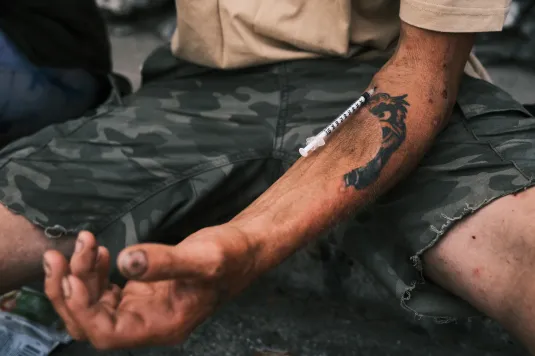A recent study conducted by the RAND Corporation reveals the extensive impact of America’s drug overdose crisis. The study found that approximately 42% of adults in the United States, equivalent to about 125 million people, know at least one person who has died from a drug overdose. This stark statistic highlights the profound effects of the overdose epidemic nationwide.
In states like Massachusetts, where overdose deaths are particularly high, nearly half of adults have a personal connection to someone who has suffered a fatal overdose. With tens of thousands of lives lost to overdoses each year, the study predicts that the number of individuals affected by these tragic losses will only continue to rise.
Based on a survey of over 2,000 respondents, the study estimates that around 40 million Americans have experienced mental or physical health impacts due to grieving the loss of a loved one to an overdose. Alarmingly, 12 million of these individuals continue to mourn their loss without adequate support, often feeling isolated in their grief.
Unlike other types of losses, such as suicide, there is often little formal outreach or support for those who have witnessed an overdose or are mourning the death of a loved one. Bereaved friends and family members are not typically connected with counseling services or provided with guidance to cope with their grief.
One reason for this lack of support is the predominant focus on efforts to prevent overdose deaths, leaving little attention and resources for those affected by the aftermath. Additionally, stigma surrounding drug use and overdose can lead to individuals feeling unworthy of support and attention, further exacerbating their grief.
However, some individuals, like Leslie Gomes Preston, have actively sought out support groups to cope with their loss. Gomes Preston, who lost her daughter to an overdose, believes in openly discussing her daughter’s life and death as a way to honor her memory.
The ripple effects of overdose deaths extend beyond individual families to entire communities. Communities with high rates of overdose deaths may experience increased rates of childhood suicide and other adverse outcomes.
To address the complex challenges posed by the overdose crisis, experts suggest directing resources towards supporting grieving individuals and communities. By acknowledging the profound impact of overdose deaths and providing adequate support, communities can work towards breaking the cycle of grief and death perpetuated by the epidemic.
As individuals continue to grapple with the devastating effects of the overdose crisis, it is clear that more comprehensive and compassionate approaches are needed to support those affected and prevent further tragedies.















































